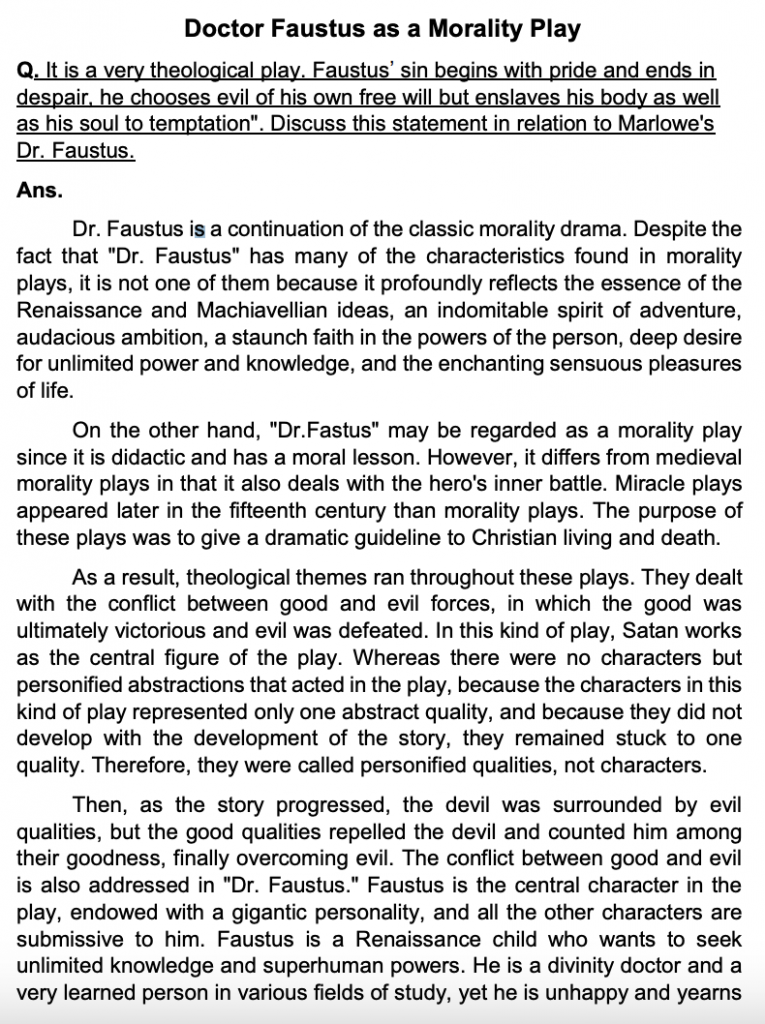Doctor Faustus as a Morality Play
Summary:
The play “Dr Faustus” by Christopher Marlowe can be seen as a continuation of the classic morality drama while reflecting the essence of the Renaissance and incorporating Machiavellian ideas. Though it deviates from medieval morality plays, it still carries didactic elements and imparts a moral lesson. The conflict between good and evil is central to both morality plays and “Dr Faustus,” where Faustus, a Renaissance character who yearns for knowledge and power, succumbs to temptation and sells his soul to the Devil. Marlowe presents Faustus’ inner battle between vice and virtue, ultimately leading to his despair. The play includes theological themes, such as the personified abstractions of vice and virtue, good and bad angels representing choices, and the warning of conscience through the Old Man. Additionally, the depiction of the seven deadly sins and the devil character, Mephistopheles, further aligns “Dr Faustus” with the traditions of morality plays. While the play showcases comedic elements, they serve as entertainment rather than moral teaching. Despite criticisms labelling it as atheistic, the play’s end represents the defeat of Machiavellianism and Renaissance ideals, emphasizing the consequences of forsaking God’s path. Ultimately, “Dr Faustus” can be seen as an inverted morality play, serving as a bridge between medieval morality plays and the illustrious Elizabethan drama.
Excerpt:
Doctor Faustus as a Morality Play
Question:
It is a very theological play. Faustus’ sin begins with pride and ends in despair. He chooses evil of his free will but enslaves his body and soul to temptation”. Discuss this statement in relation to Marlowe’s Dr Faustus.
Answer:
Dr Faustus is a continuation of the classic morality drama. Despite the fact that “Dr Faustus” has many of the characteristics found in morality plays, it is not one of them because it profoundly reflects the essence of the Renaissance and Machiavellian ideas, an indomitable spirit of adventure, audacious ambition, a staunch faith in the powers of the person, deep desire for unlimited power and knowledge, and the enchanting sensuous pleasures of life.


Reviews